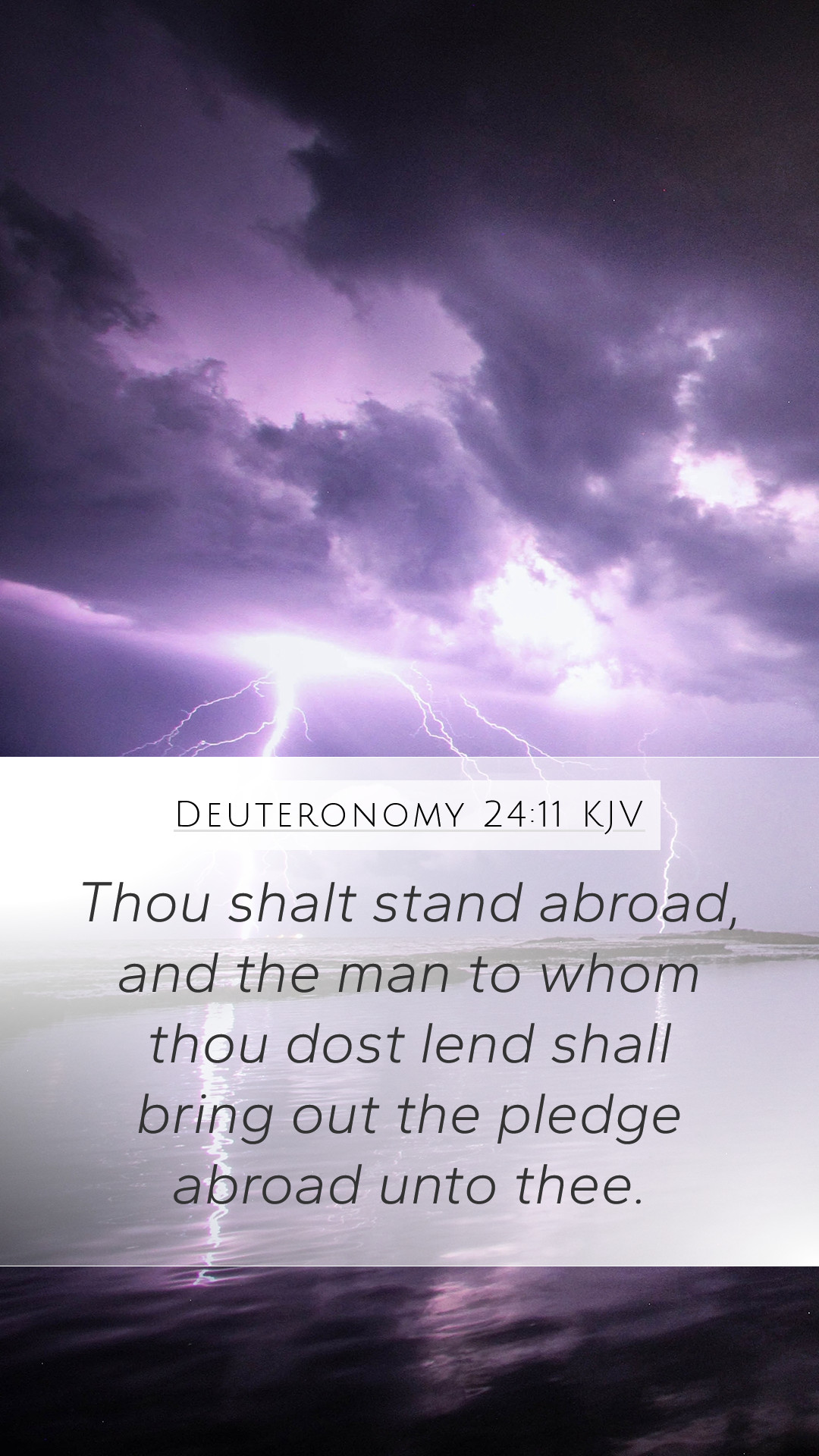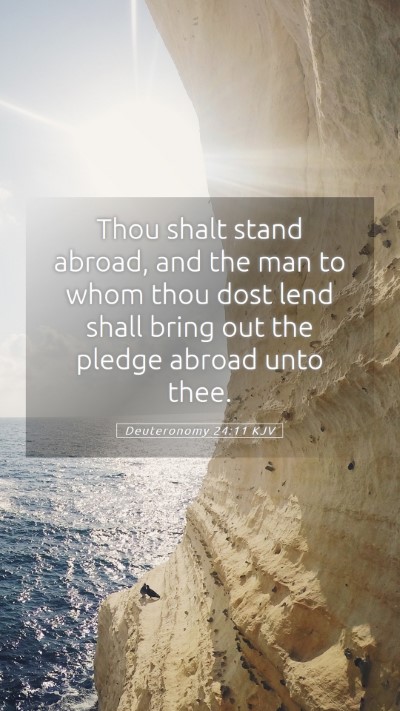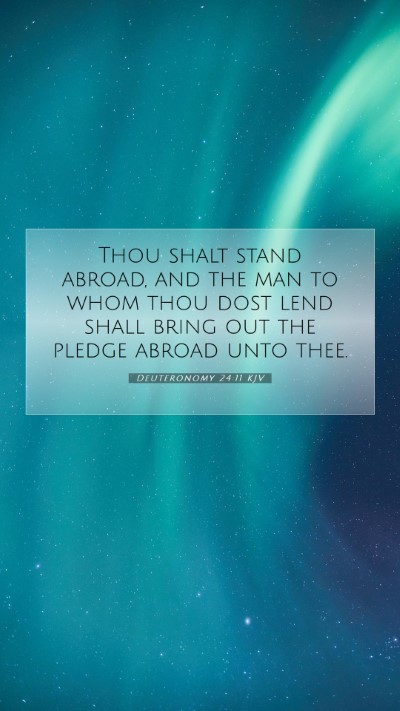Understanding Deuteronomy 24:11
The verse Deuteronomy 24:11 states:
"Thou shalt stand abroad, and the man to whom thou dost lend shall bring out the pledge unto thee." (KJV)
This verse deals with important aspects of borrowing and lending, emphasizing the principles of fairness, justice, and compassion in social interactions. Below is a detailed examination of its meaning and implications using the insights from various public domain commentaries.
Bible Verse Explanations
Overview: This verse is part of a legal framework given to the Israelites, illustrating God's concern for social justice and the welfare of the poor and needy. The laws provided in Deuteronomy serve to protect the vulnerable and maintain social order.
Commentary and Insights
-
Matthew Henry:
Henry emphasizes the moral obligations that underlie the principles of lending. He notes that the act of lending should be done with the heart of a generous neighbor. The pledge referred to represents a form of security for the loan, which should be returned promptly to maintain integrity and kindness.
-
Albert Barnes:
Barnes highlights the context under which debts were to be handled, especially in relation to the poor. He stresses that while lending is a business transaction, it should not be devoid of compassion. His commentary points out that the dignity of the borrower should be respected, and the lender is admonished to act fairly.
-
Adam Clarke:
Clarke reflects on the significance of “standing abroad” as a means of maintaining dignity when dealing with debtors. He argues that this custom fosters respect, indicating that the borrower should not be humiliated in public. Clarke underscores that this reflects God's justice in human relations.
Biblical Significance
Deuteronomy 24:11 illustrates broader themes in Scripture regarding righteousness in community living. It underscores the importance of considering the plight of others, especially regarding financial dealings. The practices outlined in this verse resonate with the overarching biblical teachings of love, mercy, and fairness.
Related Cross References
- Exodus 22:26-27 - Law on taking pledges
- Leviticus 25:35-37 - Caring for the poor and just lending
- Proverbs 19:17 - He who is kind to the poor lends to the Lord
Application of Deuteronomy 24:11
This verse is not just about ancient laws; it carries practical applications for today’s believers:
-
Understanding Financial Interactions:
As Christians, we are called to engage in fair financial practices. This involves being responsible and compassionate in how we lend and borrow.
-
Promoting Fairness in Society:
In a broader context, the principles established in this verse encourage believers to advocate for justice and integrity in all societal relationships.
-
Cultivating a Spirit of Generosity:
The call to lend graciously without exploiting others reflects the heart of Christian giving. In church communities and beyond, fostering a spirit of generosity aligns with God’s kingdom principles.
Conclusion
In summary, Deuteronomy 24:11 provides profound insights into the compassion and fairness that should govern our relationships, especially in financial matters. By understanding this scripture deeply, we equip ourselves for better interactions within our communities, embodying the love and justice of God in practical ways.
Further Study
For those engaged in Bible study groups or looking for Bible study tools, consider exploring more about biblical laws and ethical teachings. Delve into resources that examine how ancient laws translate into contemporary Christian living.


